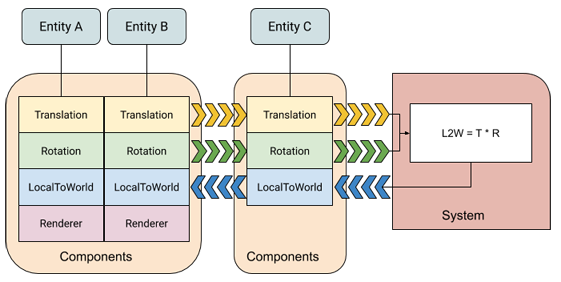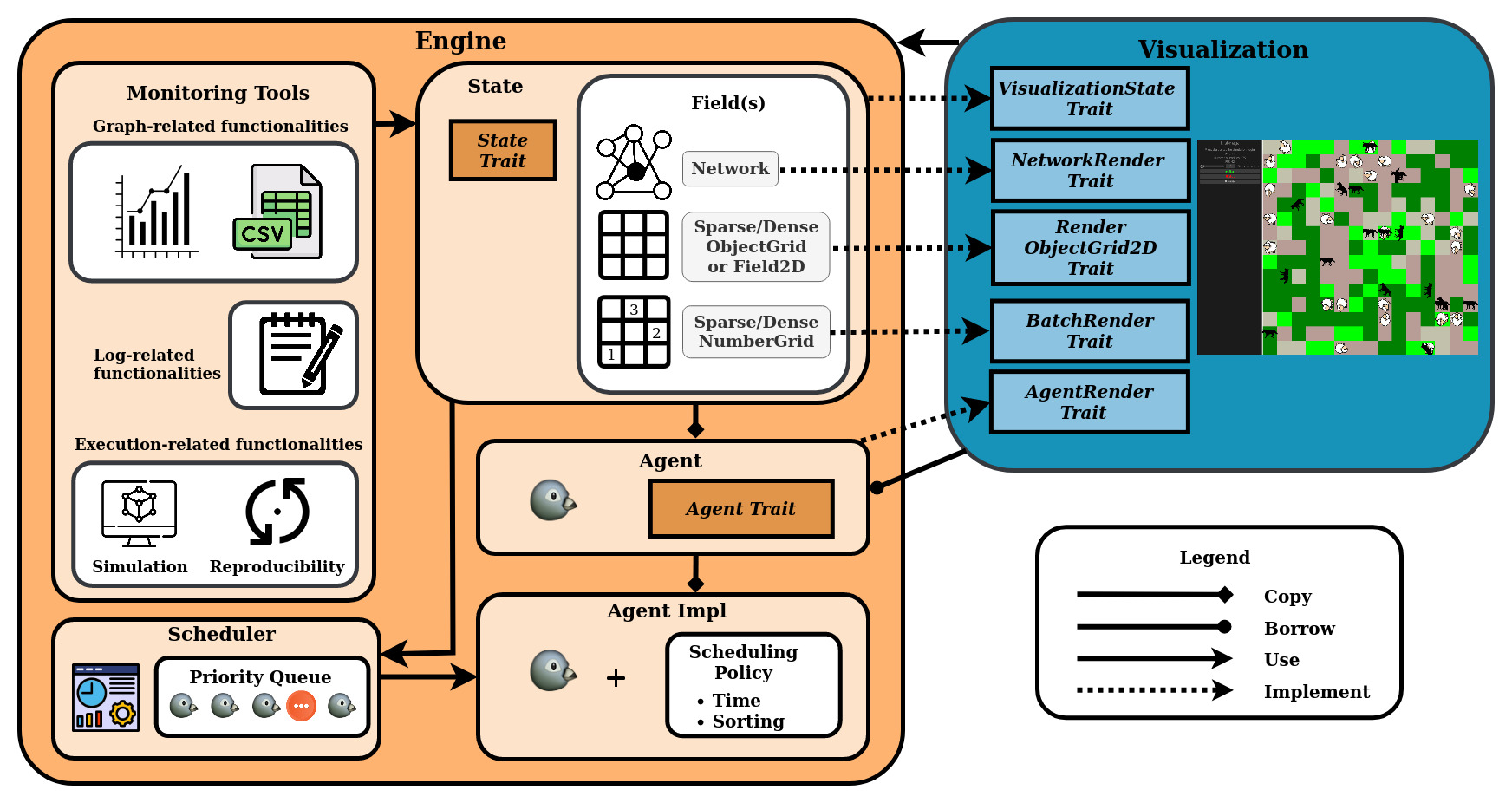tools_and_frameworks
The code structure of the model will have a significant impact on its complexity and performance. It is important for complexity to be minimized and performance to be maximized in order for the results to be trusted and reproducible.
That said, this is a personal project and I wish to get some personal growth from it.
rust, not python#
I am an intermediate-advanced Python developer. I have absolute faith in my ability to build something at least marginally functional to meet the goals I set out to achieve with this project. In fact, I already used python in this project to illustrate core concepts and practice thinking through the problem.
But I chose Rust for this project, not Python.
The primary motivator here is personal growth. I have been looking for a reason to learn Rust for years. This project affords me low stakes (consequence of failure is ruined pride and that's it), a flexible deadline (no dependents), and a use case that potentially demands a performant engine to drive it. The conditions are right for me to push outside my comfort zone and dive head first into the deep end of Rust development.
So far it has certainly been slower (and more tedious) to create functional demos in Rust compared to Python. Part of that is definitely from me climbing the (steep af) learning curve, and part is inherent to the tenets of Rust that give it all those superpowers.
I have dipped into Python to "think out loud" and it has been fruitful. My familiarity and comfort working with Rust projects has dramatically improved in the last month, and I quite enjoy it.
I think it was a wise choice in the long run to go with Rust over python for this project.
entity-component-system (ecs)#
An ECS architecture allows for a modular and scalable design, making it easier to manage the simulation's complexity. Components store data, and systems operate on that data, while resources hold shared data needed across systems. This separation of concerns and data-driven approach is a key characteristic of ECS. It is a natural fit for a Rust project.

bevy#
In our simulation, the schedule is critical. The engine or framework we choose will need to decide the order of operations each "tick" of the simulation, and we must consider this order when designing the system.
ECS frameworks like Bevy enable real-time, interactive simulations, but it might be less deterministic and structured than a "true" discrete-event simulation, since it is not specially tailored for that purpose. Bevy is a toolbox that can be used to build whatever you want, but elbow grease is a necessity. With ECS, our model can be built from first principles and we can decide how to run and visualize it later. We might find that the best approach is using it in conjunction with other crates.
plugins#
space & time#
Space at astronomical scales is very large, yet we care about time at a very small scale. There are some plugins that help manage this apparent paradox.
hifitime is purpose-built for use in orbit determination and ephemeris propagations, so that's perfect. This crate handles the precision and timescale conversions internally so I don't have to. It doesn't technically support time dilation, so that is up to me.
big-space is a Bevy plugin purpose-built for the large-and-small scale issue that comes with using realistic scaling for all entities in the Earth-Moon system. Like hifitime, the maintainers probably didn't have relativity in mind when they built it, so I might have extra work to do.
I suspect most of the large computations for gravitational potential or GR dilation could be handed to the GPU by way of shaders, then queried as a lookup table by entities back on the CPU. If nothing else, that would be the idea method of displaying things like potential or dilation as a color map.
agent-based models (abm)#
Agent-based models are a no-brainer observing emergent, macro-scale behaviors in simulations with large populations of "ants" in the "antfarm". Each Agent is programmed to have its own (possibly randomized) traits, objectives, and reactions, then a crapload of agents are unleashed in the same area. This is great when agents only need to make observations of the environment in order to make decisions, and only modify themselves and the environment.
Unfortunately, one goal of this model is to allow agents to interact with each other and modify themselves based on those interactions. I'm not sure how well ABMs handle that aspect. Regardless, ABM is an excellent template to follow.
While I'm not totally sold on ABM as the basis for the simulator, there are plugins available if I go that route.
krABMaga1 is a purpose-built discrete-events simulation engine writting in Rust and designed to be a batteries-included tool for building Agent-Based Models (ABMs). While krABMaga can leverage Bevy to visualize the model, under the hood it maintains a stricter state and execution schedule based on the popular MASON library.

krABMaga adds some creature comforts on top of Bevy but is opinionanted with respect to style.
astrodynamics#
There are a few astrodynamics crates that could be used as plugins rather than implementing all the physics from scratch.
- nyx_space. The documentation is... sparse. Expect to spend a lot of time in the source code or DMing the author. There is a wide set of tools tailored specifically for LEO missions up to lunar trajectories, including thrust maneuvers and simulated orbit determination from terrestrial ground stations.
- particular. Easy to get the demos running and the demos are beautiful. I found it surprisingly difficult to adapt the demos to my own use cases, despite the apparently simple interface. The demos are top tier examples of Bevy and egui. The simulation results "look right" but I was not able to set up a physically representative system to test accuracy.
-
bibtex @ARTICLE{AntelmiASIASIM2019, author={Antelmi, A. and Cordasco, G. and D’Auria, M. and De Vinco, D. and Negro, A. and Spagnuolo, C.}, title={On Evaluating Rust as a Programming Language for the Future of Massive Agent-Based Simulations}, journal={Communications in Computer and Information Science}, note={Conference of 19th Asia Simulation Conference, AsiaSim 2019 ; Conference Date: 30 October 2019 Through 1 November 2019; Conference Code:233729}, year={2019}, volume={1094}, pages={15-28}, doi={10.1007/978-981-15-1078-6_2}, issn={18650929}, isbn={9789811510779}, }↩